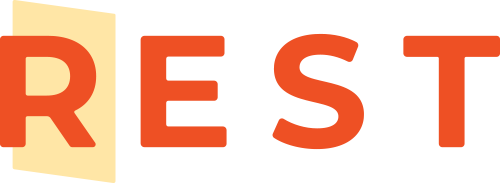by Kim Merrikin
Pornhub, a MindGeek-owned website, is one of the world’s largest porn sites. In their latest annual report, they reported 42 billion visits to Pornhub in 2019—averaging 115 million hits per day. The 6.83 million videos that were uploaded to Pornhub in 2019 accounted for 1.36 million hours of new pornographic content on the internet—that’s 169 years.
Please note that beyond this point in this blog, there are descriptions of sexual assault and exploitation.
According to the federal definition of sex trafficking, sex trafficking occurs when a commercial sex act is induced by force, fraud, or coercion, or when the person induced to perform such act has not attained 18 years of age.
In recent months, it’s come to light that Pornhub has hosted pornographic video content that features real sexual assault, trafficked minors and adults, and revenge porn. In one case, there were 58 videos of the sexual assault of a 15-year-old trafficking victim on Pornhub. In another, a 14-year-old girl who had been kidnapped and violently assaulted later found videos of her assault on Pornhub when her classmates shared the content on social media. She begged and pleaded with Pornhub to get the videos removed, letting them know she was a minor and it was sexual assault—and they did nothing. They did nothing, that is, until she set up an email address and pretended she was a lawyer threatening legal action. Within 48 hours, the content was removed.
As a growing number of women come forward with stories of sexual videos or images of them being shared online without their consent, Pornhub continues to promote these types of images with labels such as “leaked sex tape” or “passed out teen”. There are also a growing number of porn performers who have left the world of porn behind and come forward with horrific stories of abuse, assault, forced substance use, degradation, and humiliation.
In the case of the production company GirlsDoPorn, owner Michael Pratt stands indicted for using force, fraud, or coercion to get 22 different women to perform sex acts on film, and those videos were then non-consensually uploaded to Pornhub. Pratt is currently wanted on a federal warrant but fled the country.
These stories go on, and on, and on, and on.
You can see the magnitude of the allegations against Pornhub if you scroll down traffickinghub.com.
At REST, we’ve heard similar stories from many clients. One client was exploited through a modeling scheme when she was 17. A photographer took nude photos of her, and published them online, without her consent. Years later, when her boyfriend was manipulating her into a sex trafficking situation, he found and used those photos to further shame and exploit her. Other clients have had little luck getting explicit sites to remove content that either features their sexual assault or content that was non-consensually published online. Our clients know well the pain and humiliation that comes with the idea that the internet never forgets—once images and videos make it online, there is little hope of being able to control their spread.
The thing is, there is no “fair trade” stamp for pornographic content—pornography consumers have no way of knowing if sexual acts they are viewing are consensual. There is no enforceable measure for “ethical production”. Even if it’s something that looks consensual or caring, there’s no guarantee that force, fraud, or coercion wasn’t involved. Whether it’s Pornhub, any of the other porn companies owned by MindGeek, or other companies that create, host, or purvey pornographic content—there is just simply no telling whether content features exclusively consensual acts—and was shared online with entirely unforced consent.
Laila Mickelwait, Director of Abolition at Exodus Cry, recently did an experiment to discover exactly what is required to upload a video to Pornhub. What did she find? All you need is an email address. It took her less than ten minutes to upload a blank test video—that immediately became live content on the site. There is no barrier for traffickers and abusers to share videos of exploited individuals.
There is no fair trade certification for pornography.
The good news is this: We can refuse to be part of the demand. By ceasing to consume porn, we reduce the demand for the content—content that features trafficked and exploited girls, boys, women, and men. When we stop watching porn, we stop encouraging the sexual exploitation of people who are made in the image of a beautiful Creator, with inherent dignity and worth, and undeniably worthy of love.
Porn consumption and addiction is a sensitive subject. Our hope is that if you’re currently struggling with your own porn usage, that you, too, know that you deserve to be loved—and you deserve a life free from exploitation, too. Quitting porn isn’t easy—and it often comes wrapped up in shame and hopelessness—but it is worth it, and there is help.
If you want to learn more about the science behind why porn is unhealthy for the consumer, how it promotes sex trafficking, or how you can begin the journey of quitting, we encourage you to check out Fight The New Drug—a non-religious non-profit using science, data, and personal accounts to raise awareness of the harms of pornography.

